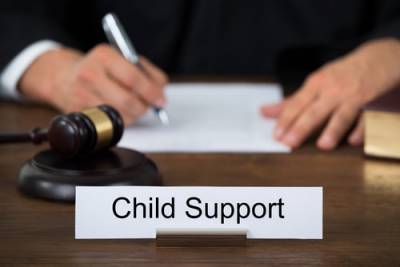Arlington Heights, IL 60005
Recent Blog Posts
What Happens if We Own a Family Business and Get Divorced?
 Divorce is rarely without complications. However, when a divorcing couple shares a family business, the divorce can be especially complex. Married spouses who are also business partners will need to determine how to address ownership of the business and the division of business assets during their divorce.
Divorce is rarely without complications. However, when a divorcing couple shares a family business, the divorce can be especially complex. Married spouses who are also business partners will need to determine how to address ownership of the business and the division of business assets during their divorce.
Dividing Business Assets in Your Divorce
A family business will likely be considered marital property in your divorce. This means that both spouses have a right to an equitable share of business assets. Before a business can be addressed during property division in a divorce, the spouses will need to determine the value of the business. There are many different ways to value a small business, but it is best to have a professional appraiser handle business valuation. This ensures that the valuation is as accurate as possible.
Restriction of Parenting Time in an Illinois Divorce or Child Custody Case
 Illinois courts presume that it is best for a child to spend time with both of his or her parents. In an ideal world, this would always be the case. Unfortunately, not every parent is capable of providing the love and care that a child needs. If there are concerns about a child's safety or wellbeing with a parent, the court will restrict parenting time. However, parenting time restrictions are usually the last resort. For a parent's parenting time to be restricted, there must be substantial evidence of serious wrongdoing or safety concerns with the parent.
Illinois courts presume that it is best for a child to spend time with both of his or her parents. In an ideal world, this would always be the case. Unfortunately, not every parent is capable of providing the love and care that a child needs. If there are concerns about a child's safety or wellbeing with a parent, the court will restrict parenting time. However, parenting time restrictions are usually the last resort. For a parent's parenting time to be restricted, there must be substantial evidence of serious wrongdoing or safety concerns with the parent.
Reasons for Parenting Time May Be Restricted
Typically, the court does not put any limits on how and when a parent may spend time with their child. However, the court always prioritizes the child's best interest in a divorce or child custody dispute. In some cases, unrestricted parenting time is not in the child's best interest.
What Happens If I Do Not Sign the Divorce Papers?
 Some divorces follow years of marital turmoil. The marriage is over long before the couple takes steps to officially end the marriage. However, sometimes, being served with divorce papers comes as a complete shock. In some cases, the respondent in a divorce case is not even aware that his or her spouse wants to end the marriage. He or she may still believe the marriage is salvageable or that divorce is not the right solution.
Some divorces follow years of marital turmoil. The marriage is over long before the couple takes steps to officially end the marriage. However, sometimes, being served with divorce papers comes as a complete shock. In some cases, the respondent in a divorce case is not even aware that his or her spouse wants to end the marriage. He or she may still believe the marriage is salvageable or that divorce is not the right solution.
If you were served with a divorce petition and you and not ready to end your marriage, you may wonder if you can simply refuse to respond to the divorce petition.
Failure to Respond to a Petition for Dissolution of Marriage
Illinois spouses who are served with divorce papers are also served with a summons requiring them to respond to the divorce petition. The respondent is asked to file a written appearance and response within 30 days. The appearance provides official notice to the petitioner and the court that the respondent wishes to be involved in the divorce process. Filing an appearance is the first step in participating in decisions about marital property and debt, child custody, and spousal maintenance.
Can My Ex Modify Spousal Support Payments?
 In the wake of a divorce, spousal support payments, also known as spousal maintenance or alimony, can help both spouses maintain a lifestyle that is similar to the one that they were accustomed to as a married couple. The payments are common when one spouse makes a larger income, has greater earning potential, or has more assets than the other. However, spousal support payments can last for years after the divorce, with their length depending on the length of the marriage.
In the wake of a divorce, spousal support payments, also known as spousal maintenance or alimony, can help both spouses maintain a lifestyle that is similar to the one that they were accustomed to as a married couple. The payments are common when one spouse makes a larger income, has greater earning potential, or has more assets than the other. However, spousal support payments can last for years after the divorce, with their length depending on the length of the marriage.
In the years after a divorce, circumstances can change for both spouses and the initial order may need to be revisited. There are various grounds upon which a spouse can petition the court to grant a modification. The Law Offices of Donald J. Cosley has experience representing spouses on both sides of the support issue and can make sure that you are receiving or paying your fair share after a change in the life of you or your ex-spouse.
Three Situations in Which You May Need to Get a Child Support Modification
 Raising a child is expensive. Between childcare, housing, food, extracurricular activities, and educational costs, many parents struggle to make ends meet while still providing the life their child deserves. In Illinois, children have the right to receive financial assistance from both parents even if the parents are divorced or never married. Illinois child support orders are usually based on a mathematical formula that considers both parents’ net incomes. This ensures that the child support payments are reasonably affordable while still providing the child with what he or she needs. However, sometimes circumstances change, and the child support order is no longer appropriate. In this case, a parent may want to get a child support modification.
Raising a child is expensive. Between childcare, housing, food, extracurricular activities, and educational costs, many parents struggle to make ends meet while still providing the life their child deserves. In Illinois, children have the right to receive financial assistance from both parents even if the parents are divorced or never married. Illinois child support orders are usually based on a mathematical formula that considers both parents’ net incomes. This ensures that the child support payments are reasonably affordable while still providing the child with what he or she needs. However, sometimes circumstances change, and the child support order is no longer appropriate. In this case, a parent may want to get a child support modification.
Changing a Child Support Order Due to a Change in Circumstances
When the court enters a child support order, the parents are expected to follow the order. Child support modifications are only granted in certain situations. It is also important to note that parents cannot modify child support on their own even if they agree to the change. Only the court can modify child support orders.
4 Modern Issues Co-Parents Should Discuss When Making Their Parenting Plan
 It seems like the world has changed dramatically in the last few years. In many ways it has. Parents who get divorced have an entire new set of obstacles and challenges to face as co-parents.
It seems like the world has changed dramatically in the last few years. In many ways it has. Parents who get divorced have an entire new set of obstacles and challenges to face as co-parents.
If you are getting divorced and you share children with your soon-to-be-ex, you will need to make a parenting plan that describes your parenting time schedule and the allocation of parental responsibilities. When you complete your parenting plan, make sure to consider modern issues such as:
Technology and Screen Time
Many parents worry about their children spending too much time on their cell phone, computer, or tablet. Make sure to discuss whether you and the other parent will institute rules about how and when your children use technology. Consider questions like:
- Will our children have a “screen time” limit?
What if a Self-Employed Spouse Lies About Income During Divorce?
 Divorcing spouses’ income and assets influence everything from property division to child support. Whether a divorcing couple reaches a negotiated divorce settlement or the case goes to court, the spouses can only make informed decisions if both parties disclose full, accurate financial information. Spouses may try to sway the divorce in their favor by underreporting their income, inflating expenses or debt, or lying about assets. This type of financial deception is often especially easy for self-employed spouses.
Divorcing spouses’ income and assets influence everything from property division to child support. Whether a divorcing couple reaches a negotiated divorce settlement or the case goes to court, the spouses can only make informed decisions if both parties disclose full, accurate financial information. Spouses may try to sway the divorce in their favor by underreporting their income, inflating expenses or debt, or lying about assets. This type of financial deception is often especially easy for self-employed spouses.
False income information can heavily influence the case. Lying on official court documents is also unlawful. If you are getting divorced, honest, complete financial disclosure is a must.
Determining a Spouse’s Self-Employment Income During Divorce
If your spouse is self-employed, you may worry that he or she will lie about the amount of money he or she makes. Some spouses try to lower their spousal maintenance or child support obligations by understating their income. Conversely, spouses may try to get more support than they deserve by pretending to be less financially successful than they actually are. Spouses may also underreport income to influence property division.
Can I Kick My Spouse Out of Our Shared Home During Divorce?
 Most couples that separate or divorce live in separate homes while the divorce is ongoing. However, some spouses refuse to move out—even if the marriage has become intolerable. If you are seeking a divorce and your spouse refuses to leave your home, you may wonder if you can kick your spouse out or have them evicted. In Illinois, a spouse may be able to seek exclusive possession of the marital home under certain circumstances. Read on to learn more.
Most couples that separate or divorce live in separate homes while the divorce is ongoing. However, some spouses refuse to move out—even if the marriage has become intolerable. If you are seeking a divorce and your spouse refuses to leave your home, you may wonder if you can kick your spouse out or have them evicted. In Illinois, a spouse may be able to seek exclusive possession of the marital home under certain circumstances. Read on to learn more.
Evicting a Spouse Through a Motion for Exclusive Possession of the Marital Residence
Divorce is usually a tense process, but sometimes that tension escalates to a point that is unsafe. Hostility during divorce can damage the mental wellbeing of the spouses and their children.
If living together in the same home as your soon-to-be-ex-spouse has become intolerable and he or she refuses to move out, you may be able to file a motion for exclusive possession of your home. If granted, the order will force your spouse to move out. However, Illinois courts only grant motions for exclusive possession if there is legitimate danger to either spouse or the children. Mere tension, awkwardness, or stress may not be satisfactory reasons.
Three Financial Concerns to Be Aware of in Your Illinois Divorce
 Often, the emotional and personal fallout caused by the split gets the lion’s share of attention during divorce. However, divorcing spouses must also consider the financial consequences of the split. Divorce can dramatically impact your personal finances. Furthermore, mistakes during the process can lead to avoidable financial losses and extra stress for both parties. If you are getting divorced, make sure you consider the following financial concerns.
Often, the emotional and personal fallout caused by the split gets the lion’s share of attention during divorce. However, divorcing spouses must also consider the financial consequences of the split. Divorce can dramatically impact your personal finances. Furthermore, mistakes during the process can lead to avoidable financial losses and extra stress for both parties. If you are getting divorced, make sure you consider the following financial concerns.
Marital Debt Can Haunt Spouses Long After the Split
When you get divorced, you and your spouse will need to address your shared property as well as your shared debts. Per Illinois’s equitable distribution laws, most debts accumulated by either spouse during the marriage are marital debts for which both parties are responsible. Those financial obligations do not terminate when the couple divorces. Spouses who divide joint debt between each other may still be pursued by creditors if the other spouse fails to make his or her payments on time – even after the divorce is finalized. This is why many financial experts encourage divorcing spouses to pay off debts during the divorce by selling other assets.
Do I Have to Share My Retirement Funds With My Spouse in a Divorce?
 Saving for retirement is a top concern for many working adults. Many people dream of living out their golden years enjoying hobbies and spending time with loved ones. Understandably, divorcing spouses often wonder if their divorce will threaten their retirement plans. They question whether retirement funds that they earned on their own are considered shared property for the purposes of divorce.
Saving for retirement is a top concern for many working adults. Many people dream of living out their golden years enjoying hobbies and spending time with loved ones. Understandably, divorcing spouses often wonder if their divorce will threaten their retirement plans. They question whether retirement funds that they earned on their own are considered shared property for the purposes of divorce.
Classification of Retirement Accounts in an Illinois Divorce
There are two main categories of property in an Illinois divorce case: marital property and non-marital or separate property. Almost every asset or debt that a spouse acquires during the marriage is a marital asset or debt. Property acquired through inheritance or gift are two notable exceptions. Assets and debts that a spouse had before the marriage are classified as non-marital.












